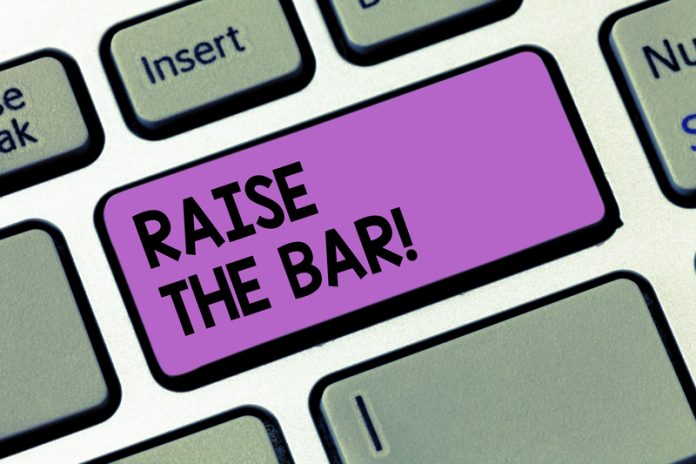
AG looks at how the Department of Education is improving standards in schools to help pupils leave school with qualifications to find employment
Are UK schools performing as well as they should be? Last month AG reported that only 18% of parents in England thought that the government listened to them about their child’s education. Does this mean that the government are missing a trick in regards to how schools perform?
However, the Department for Education has reported a different story. In figures published in October, they revealed that standards continue to rise under the Academies programme. The provisional GCSE results that were published for the first time showed that converter academies are performing 7.2% points above the national average, with 63.3% of pupils achieving the headline measure of 5+ A* to C GCSEs, including English and Maths.
Converter Academies make up the single biggest type of secondary school, representing 40% of schools. More headteachers are having the freedom to run their school in a way that works for their pupils. The government believes that the results demonstrate that the Academies programme is “continuing to transform the landscape of English education.” Speaking about the results, School Minister Nick Gibb said 1: “As a one nation government we are committed to delivering educational excellence in every area of the country, and these results demonstrate the progress which is being made in extending opportunity and raising academic standards.
“Converter academies are leading the way in string academic standards and over time we will see the excellence and expertise of strong sponsors spread. As well as raiding standards, our plan for education is ensuring more pupils leave school with qualifications which we know will give them the best possible chance to achieve their full potential.” The government has recently focused their attention on ensuring pupils study core academic subjects. Earlier this year, Secretary of State for Education Nicky Morgan announced that all pupils starting secondary school from September must study the key English Baccalaureate (EBacc) subjects of English, maths, science, history or geography, and a language at GCSE.
The new measures aim to place the UK education systems on par with the best-performing countries. The government wants to ensure that young people are able to compete with peers across the globe in when they go into or apply for full-time employment. The EBacc was introduced back in 2010 to help pupils from particularly disadvantaged backgrounds study the key academic subjects. Figures show that the proportion of pupils entered into the EBacc has almost doubled, rising from 22% in 2010 to 39% in 2014.
Education Secretary Nick Morgan said 2: “As part of this government’s commitment to social justice we want every single person in the country to have access to the best opportunities Britain has to offer – starting with an excellent education.
“This means ensuring children study key subjects that provide them with the knowledge they need to reach their potential – while setting a higher bar at GCSE so young people, their parents and teachers can be sure that the grades they achieve will help them get on in life.
“And it means giving teachers the training they need to tackle low-level bad behaviour which unfairly disrupts pupils’ learning.”
The government seem to be doing all they can to ensure pupils in Britain remain focused on their education and leave school with the ability to gain employment. Behaviour and academic ability go hand in hand in terms of achieving high at school.
In June, Schools Minister, Nick Gibb 3 announced an investigation into the impact of smartphones and tablets on the behaviour of pupils. Although some schools use tablets as a learning tool, teachers are reporting the growing numbers of children bringing personal devices into class. This is leading to disruption in class, which hinders teaching.
In May, the London School of Economics (LSE) found that banning mobile phones from classrooms could benefit students’ learning by as much as an additional week’s worth of schooling over an academic year. The report suggested that banning phones would benefit low-achieving children and those from disadvantaged backgrounds.
Nick Gibb said: “Since 2010 we have given teachers more power to ensure good behaviour in the classroom. But we need to make sure the advice we give to schools and the approaches being used across the country are fit for the 21st Century when even primary school pupils may be bringing in phones or tablets.
“Whether it is the use of mobile phones in schools or the attitudes of parents to their child’s behaviour in class, we will now probe deeper into behaviour more generally to ensure that no child has to put up with having their education disrupted by misbehaviour.” The government certainly seems to be committed to ensuring education is one of its key priorities. The government are also inviting your say on failing schools. Launched last month, the consultation is on proposals to speed up the transformation of failing schools and schools that are deemed to be ‘coasting’. “We are committed to delivering on our manifesto to a commitment to transform failing and coasting schools so that every child has the benefits to an excellent education,” said Nicky Morgan 4.
“Over the course of the last Parliament, we saw a million more pupils in good or outstanding schools. The measures outlined in this consultation will focus on the next million, extending the opportunity to young people right across the country.”
The consultation which runs until 18 December will seek views on a revised ‘Schools causing concern’ guidance. This sets out how regional schools commissioners will use the new powers to turn around failing schools.
It still remains to be see if the current Education Ministers are doing a better job than the previous Secretary of State, Michael Gove. But with the recent GCSE results, and proposals to transform schools across the UK, they are not off to a bad start.
1 https://www.gov.uk/government/news/academic-standards-continue-to-rise-under-the-academies-programme
2 https://www.gov.uk/government/news/new-reforms-to-raise-standards-and-improve-behaviour
3 https://www.gov.uk/government/news/impact-of-smartphones-on-behaviour-in-lessons-to-be-reviewed
4 https://www.gov.uk/government/news/have-your-say-on-measures-to-transform-failing-schools










